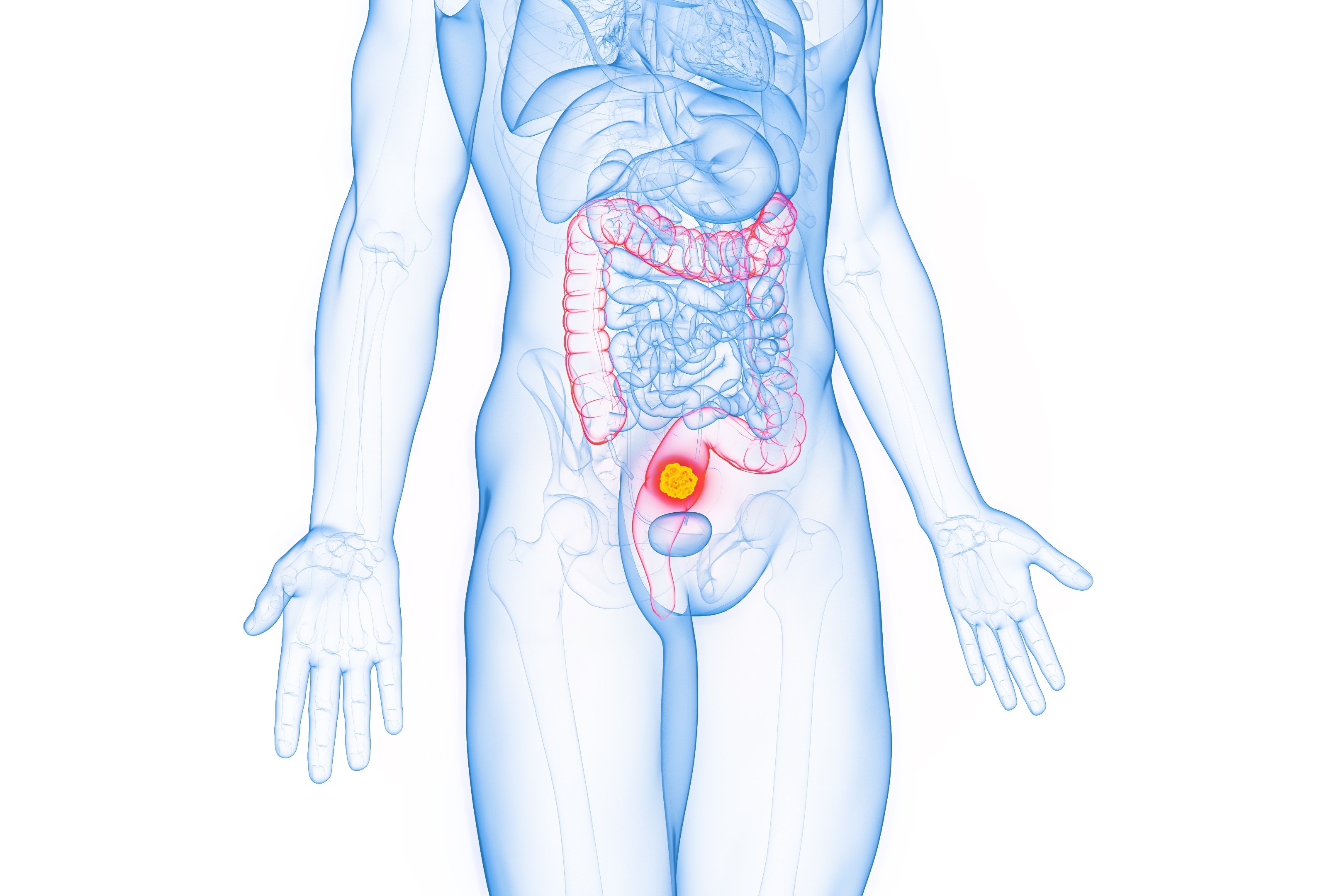
(Vienna, 13 March 2025) A research team led by MedUni Vienna has discovered that the protein AF1q is increasingly detectable in rectal carcinomas after short-term radiotherapy. The results of the study show that AF1q could play a role in influencing tumour behaviour and the effect of radiotherapy and open up a promising new option for improving therapy and developing new treatment strategies. The study was published in the journal Cancer Medicine.
As part of the study, tumour samples from 75 patients with rectal cancer who were scheduled to undergo surgery were retrospectively analysed. A group of patients with locally advanced tumours received short-term radiotherapy with a total dose of 25 Gray (Gy) before surgery. Immunohistochemical examinations by the research team led by Elisabeth S. Gruber (Department of General Surgery) and Lukas Kenner (Clinical Institute of Pathology) showed that AF1q was significantly more highly expressed in irradiated tumours than in untreated tumours. AF1q is a regulatory protein that is involved in various signalling pathways and plays a role in several cancers.
In addition, an association between increased AF1q expression and certain tumour characteristics was observed: irradiated tumours had more STAT1 protein, while IDO1, an enzyme that can promote tumour growth, was expressed less. The STAT1 axis plays a central role in immune defence and tumour control, as it mediates pro-inflammatory signals and enhances the immune response. The results suggest that AF1q may exert an anti-tumour effect in irradiated tumours by interacting with the STAT1 axis.
Rectal cancer is one of the most common tumours of the gastrointestinal tract. Treatment often involves a combination of surgery, chemotherapy and radiotherapy. Short-term radiotherapy is an alternative strategy to standard chemoradiotherapy and is characterised by a shorter treatment duration. The impact of this form of therapy on tumour biology is the subject of intensive research to identify possible new therapeutic targets.
"Our study shows that AF1q could be a promising therapeutic target that responds to radiotherapy to improve the effectiveness of existing treatments and possibly lead to the development of new therapeutic strategies," said lead author Elisabeth S. Gruber. Further studies with a larger patient cohort are needed "to confirm the significance of AF1q for the treatment and prognosis of rectal cancer," adds principal investigator Lukas Kenner.
Publication: Cancer Medicine
Radiation-enhanced AF1q Moves Center Stage as a Key Driver to Favorable Tumor Stage in Rectal Cancer Patients
Elisabeth S. Gruber, Georg Oberhuber, Elisabeth Gurnhofer, Robert Eferl, Gerald Timelthaler, Béla Teleky, Dietmar Georg, Joachim Widder, William Tse, Lukas Kenner
https://onlinelibrary.wiley.com/doi/10.1002/cam4.70658